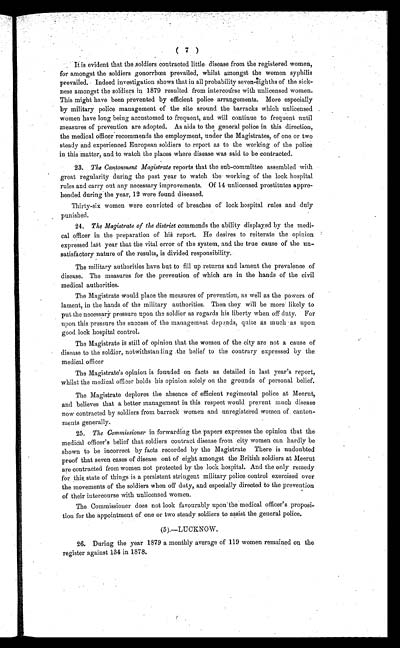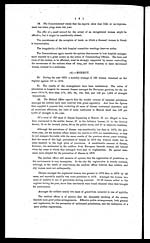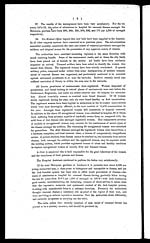Medicine - Institutions > Lock hospitals > Annual report on the working of the lock hospitals in the North-Western Provinces and Oudh > Sixth annual report of the working of the lock hospitals in the North-Western Provinces and Oudh, for the year 1879
(197) Page 7
Download files
Individual page:
Thumbnail gallery: Grid view | List view

( 7 )
It is evident that the soldiers contracted little, disease from the registered women,
for amongst the soldiers gonorrhœa prevailed, whilst amongst the women syphilis
prevailed. Indeed investigation shows that in all probability seven-eighths of the sick-
ness amongst the soldiers in 1879 resulted from intercoúrse with unlicensed women.
This might have been prevented by efficient police arrangements. More especially
by military police management of the site around the barracks which unlicensed
women have long being accustomed to frequent, and will continue to frequent until
measures of prevention are adopted. A aids to the general police in this direction,
the medical officer recommends the employment, under the Magistrates, of one or two
steady and experienced European soldiers to report as to the working of the police
in this matter, and to watch the places where disease was said to be contracted.
23. The Cantonment Magistrate reports that the sub-committee assembled with
great regularity during the past year to watch the working of the lock hospital
rules and carry out any necessary improvements. Of 14 unlicensed prostitutes appre-
hended during the year, 12 were found diseased.
Thirty-six women were convicted of breaches of lock hospital rules and July
punished.
24. The Magistrate of the district commends the ability displayed by the medi-
cal officer in the preparation of his report. He desires to reiterate the opinion
expressed last year that the vital error of the system, and the true cause of the un-
satisfactory nature of the results, is divided responsibility.
The military authorities have but to fill up returns and lament the prevalence of
disease. The measures for the prevention of which are in the hands of the civil
medical authorities.
The Magistrate would place the measures of prevention, as well as the powers of
lament, in the hands of the military authorities. Then they will be more likely to
put the necessary pressure upon the soldier as regards his liberty when off duty. For
upon this pressure the success of the management depends, quite as much as upon
good lock hospital control.
The Magistrate is still of opinion that the women of the city are not a cause of
disease to the soldier, notwithstanding the belief to the contrary expressed by the
medical officer
The Magistrate's opinion is founded on facts as detailed in last year's report,
whilst the medical officer holds his opinion solely on the grounds of personal belief.
The Magistrate deplores the absence of efficient regimental police at Meerut,
and believes that a better management in this respect would prevent much disease
now contracted by soldiers from barrack women and unregistered women of canton-
ments generally.
25. The Commissioner in forwarding the papers expresses the opinion that the
medical officer's belief that soldiers contract disease from city women can hardly be
shown to be incorrect by facts recorded by the Magistrate There is undoubted
proof that seven cases of disease out of eight amongst the British soldiers at Meerut
are contracted from women not protected by the lock hospital. And the only remedy
for this state of things is a persistent stringent military police control exercised over
the movements of the soldiers when off duty, and especially directed to the prevention
of their intercourse with unlicensed women.
The Commissioner does not look favourably upon the medical officer's proposi-
tion for the appointment of one or two steady soldiers to assist the general police.
(5).—LUCKNOW.
26. During the year 1879 a monthly average of 119 women remained on the
register against 134 in 1878.
Set display mode to: Large image | Zoom image | Transcription
Images and transcriptions on this page, including medium image downloads, may be used under the Creative Commons Attribution 4.0 International Licence unless otherwise stated. ![]()
| Permanent URL | https://digital.nls.uk/75111423 |
|---|




